This article was medically reviewed by Luba Lee, FNP-BC, MS. Luba Lee, FNP-BC is a Board-Certified Family Nurse Practitioner (FNP) and educator in Tennessee with over a decade of clinical experience. Luba has certifications in Pediatric Advanced Life Support (PALS), Emergency Medicine, Advanced Cardiac Life Support (ACLS), Team Building, and Critical Care Nursing. She received her Master of Science in Nursing (MSN) from the University of Tennessee in 2006.
There are 12 references cited in this article, which can be found at the bottom of the page.
This article has been viewed 18,191 times.
Dysthymic disorder (also called persistent "low level" depressive disorder) is characterized by a chronic depressed mood that lasts 2 or more years.[1] While major depression is characterized by severe depressive episodes, dysthymic disorder tends to express itself as mild but persistent low mood on more days than not.[2] It can be challenging to love someone who always appears mildly depressed or that sees having a low mood as “the way they are.” However, you can show your support by talking about dysthymia and depression, engaging in healthy interactions with your loved one, and encouraging them to have a healthy lifestyle.
Steps
Discussing Depression with Your Loved One
-
1Talk about depression. Dysthymia is a category of depression. Have a discussion with your loved one about their symptoms and depression. Be gentle in your approach, yet let them know you are concerned and want to help. Prioritize showing compassion over giving advice. Let them know you are ready to listen and be supportive.[3] Remember that dysthymia is a long-term suffering with symptoms of depression and not something the person can stop feeling when they want to.
- Start the conversation by saying, “I’m concerned about you” or, “I’ve noticed some changes and I’m wondering how you’re doing.”
- Ask questions such as, “When did you start feeling like this? What makes it difficult for you? Do you feel like this all time?”
- Avoid being condescending (“Why aren’t you better yet?”), minimizing their pain (“Everybody feels this way”), or telling them to “snap out” of it.
-
2Ask how you can support them. When talking to your loved one, don’t take it as an opportunity to tell them what to do or how to get better. This can make them feel disempowered or that they are not in control of your disorder or their treatment. Instead, learn from them and ask, “How can I be there for you? What support do you need?”[4]
- Ask, “Have you considered getting help? How can I support you in your treatment?”
Advertisement -
3Check up on your loved one. Isolation and loneliness can make depressive symptoms worse.[5] Check up on your loved one regularly and offer to spend time together. Even a weekly phone call can help if you live far away. Encourage your loved one to spend time with others and engage in social relationships and activities.[6]
- If you notice your loved one isolating, reach out. Offer to come over and make dinner or go to a movie together.
- If your loved one continuously refuses to meet up, express your concern. Say, “I’m concerned that you’re isolating, which makes me wonder how you’re doing with your dysthymia. Are you feeling okay? Is there anything I can do?”
-
4Encourage healthy habits. Encourage your loved one to keep healthy habits for overall well-being and health. Support them in eating healthy foods, managing stress, and getting good sleep each night.[7] Staying physically healthy can help with staying mentally healthy.
- Talk to your loved one about the benefits of overall health. Say, “I know you struggle with dysthymia, and I want to help you feel better overall. Staying healthy means taking take of your health and keeping your body running well.”
- Invite them over for healthy meals to spend time together and to enjoy healthy cooking. Enjoy non-alcoholic activities such as watching a movie or going for coffee.
- Encourage them to eat more omega-3 fatty acids, which can ease depressive symptoms. Some good habits include eating a 4-ounce serving of fatty fish such as salmon, mackerel, or tuna twice a week, or taking a 2-gram fish oil supplement.
-
5Don't forget to take care of yourself, too. To be the best possible support for someone with dysthymia, you need to sustain your own physical, mental and spiritual well-being as well. Set aside some time for yourself each day to do things you enjoy, such as going for an evening walk, reading a book, or participating in a favorite hobby.
- Ask other loved ones to help you so that you are not trying to do everything yourself.
Spending Time Together
-
1Exercise together. Exercise is a great way to boost mood and prevent depressive episodes. Engaging in regular exercise can help manage dysthymia and other symptoms of depression. Encourage your loved one to get 15 to 30 minutes of activity every day.[8]
- Offer to exercise with your loved one by going on regular walks, joining a fitness class such as spinning, or joining a gym. Make it fun and something you both look forward to doing together.
- Be gentle and do not pester your loved one if they resist. Keep inviting them to do activities with you and find one that appeals to them.
-
2Meditate together. Meditation has health benefits for physical, emotional, and mental health. Additionally, it can help with managing symptoms of depression.[9] Meditate together to harness the powers of accountability and to improve both of your lives.
- One basic meditation is to focus on your breathing. Sit comfortably and focus on your inhales and exhales. Tune out your thoughts and point your attention solely to your breath. Do this for 5 to 15 minutes.
- If you’re interested in learning other meditation techniques, check out How to Meditate, How to do Mindful Meditation, and How to Meditate to Relieve Stress.
-
3Help out when you can. Help your loved one in their treatment by assisting in making appointments and driving them to see their therapist. If your loved one has a difficult time keeping up with life, offer to help out by making meals and assisting in housework.[10]
- Make sure that while you help out your loved one you do not get burnt out or resentful. If this happens, take a step back and re-evaluate how you’re able to help.
-
4Practice relaxation together. Find some healthy outlets for stress that you can do together. 30 minutes of relaxation each day can help manage depression, stabilize moods, and cope with stress.[11] Relaxation can help you feel good and spend time together doing something beneficial.
- Do activities that both of you enjoy and find benefit in. Check out yoga classes, qi gong, or other activities, such as painting or writing. Find something you enjoy and stick with it.
-
5Explore the pleasure in everyday life. Recognizing the value in activities as simple as walking, gardening, or watching an uplifting movie can stimulate the brain to release hormones that ease the symptoms of dysthymia.
-
6Consider treatments like light therapy. This simple treatment involves sitting or working near a device called a light therapy box, which gives off bright light meant to simulate sunshine and effects brain chemicals related to mood and sleep.[12] A new study shows that light therapy, in conjunction with pharmacotherapy, significantly improved depression among patients.[13]
Looking Out for Their Mental Health
-
1Encourage treatment. Dysthymia often requires treatment from multiple types of professionals. If supportive techniques like diet, exercise, medication and social support aren't effective, encourage your friend to visit their doctor. Remind your loved one that treatment is important and will help improve their symptoms. Encourage them to get regular therapy. Even if they are feeling better, support them in taking medications regularly, and if they want to come off medication, advise them to do so with the guidance of a psychiatrist. It’s okay if treatment and symptom improvement takes time.[14]
- Both minor dysthymic disorder and major depression are treated with the same kinds of medication, although dysthymic disorder may require a smaller dosage. Medication may only be needed for a short time to help your loved one regain their mental health.
- An alternative to medication is psychotherapy. This can involve 6-12 weekly sessions that use open-ended questions, affirmation, reflection, and problem-solving therapy.
- If your loved one does not have a therapist, help them to find one. Call their insurance provider, local mental health clinic, or get a referral from their physician.
-
2Watch out for suicidal behaviors. Some people experience suicidal thoughts as a result of feeling depressed. For someone with dysthymia, they might feel like they cannot get away from the depressed feelings and want to find an out.[15] Look out for warning signs of suicide such as talking about killing themselves, selling their possessions, increasing alcohol or substance use, feeling like a burden to others, socially withdrawing from friends and activities, and acting reckless.[16] Let your loved one know they can reach out to you and that you want to support them without judging them. Encourage them to get treatment right away.
- If your loved one is suicidal, take any threats seriously and act on them right away. Call emergency services, go to your local emergency department, and get in touch with their therapist.
- You can also call a suicide helpline, such as 988 in the USA (can also be reached via text), 116 123 in the UK, and 13 11 14 in Australia.
-
3Encourage them to join social activities. If your loved one lacks social connection, encourage them to join a hobby or activity that exposes them to others. If your loved one has always had an interest in art, encourage a painting class or sculpting class. Or, perhaps check out another activity such as karate, scrapbooking, or gardening. Whatever it is, encourage social environment which can help connect them to others easily.[17]
- Volunteering is a great way to do some good for the community and meet new people. If your loved one is shy or doesn’t want to be around lots of people, encourage them to volunteer at an animal shelter.
References
- ↑ https://www.nimh.nih.gov/health/topics/depression/index.shtml
- ↑ http://www.helpguide.org/articles/depression/depression-signs-and-symptoms.htm
- ↑ http://www.helpguide.org/articles/depression/helping-a-depressed-person.htm
- ↑ http://www.helpguide.org/articles/depression/helping-a-depressed-person.htm
- ↑ http://psychcentral.com/lib/social-support-is-critical-for-depression-recovery/
- ↑ https://www.nimh.nih.gov/health/topics/depression/index.shtml
- ↑ http://www.helpguide.org/articles/depression/depression-treatment.htm#alternative
- ↑ http://www.helpguide.org/articles/exercise-fitness/emotional-benefits-of-exercise.htm
- ↑ https://www.psychologytoday.com/blog/feeling-it/201309/20-scientific-reasons-start-meditating-today
- ↑ http://www.helpguide.org/articles/depression/helping-a-depressed-person.htm
- ↑ http://www.helpguide.org/articles/bipolar-disorder/bipolar-support-and-self-help.htm#stress
- ↑ https://pubmed.ncbi.nlm.nih.gov/31826657/
- ↑ https://pubmed.ncbi.nlm.nih.gov/31826657/
- ↑ https://my.clevelandclinic.org/health/diseases/9292-persistent-depressive-disorder-pdd
- ↑ http://www.helpguide.org/articles/depression/helping-a-depressed-person.htm
- ↑ http://www.save.org/about-suicide/warning-signs-risk-factors-protective-factors/
- ↑ http://www.helpguide.org/articles/depression/dealing-with-depression.htm#supportive
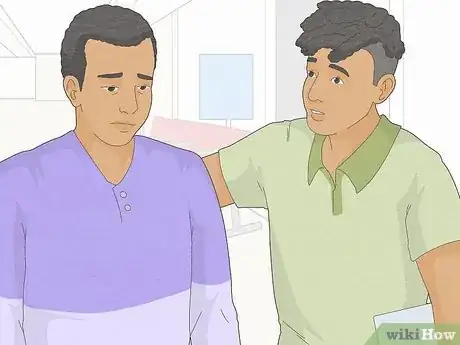
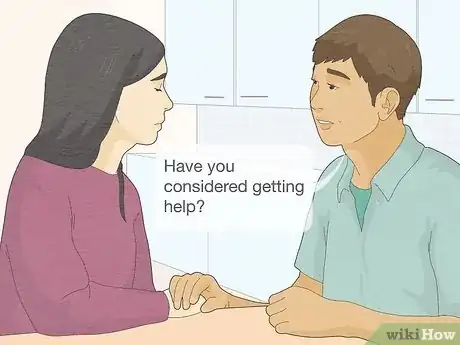
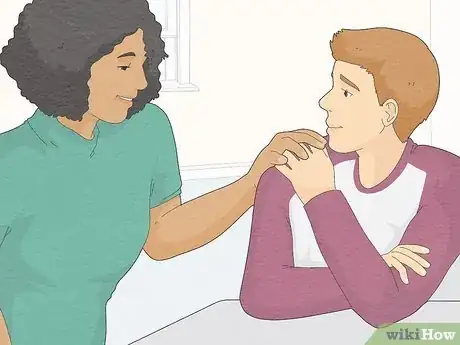
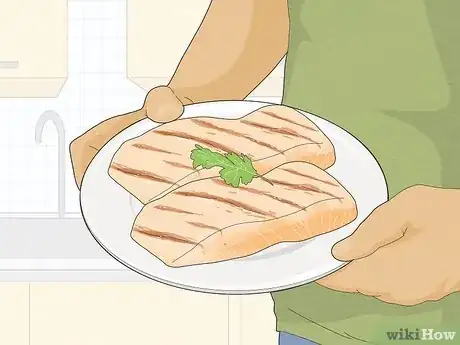



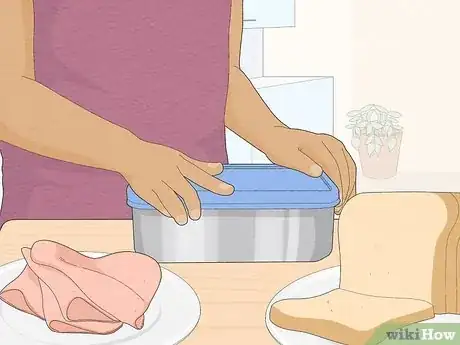
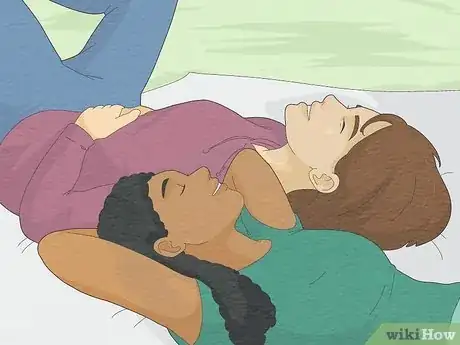

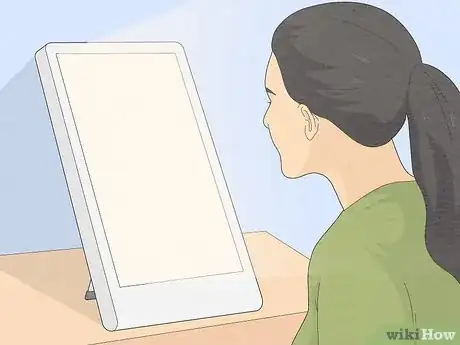
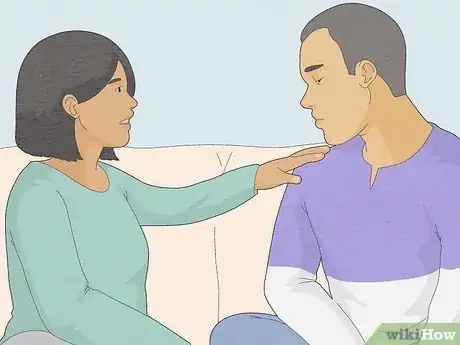
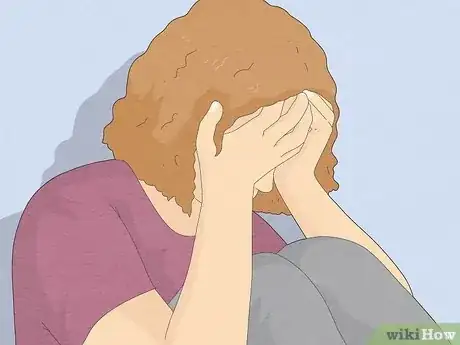
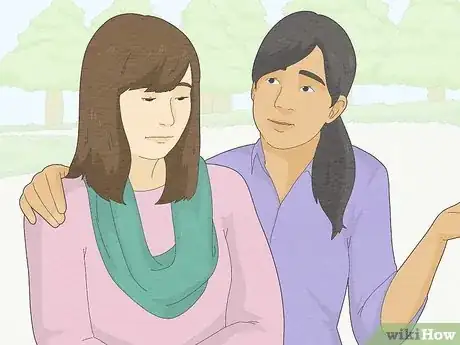


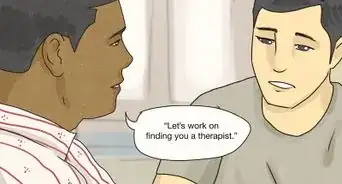

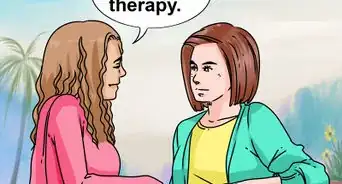






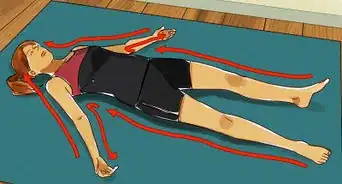

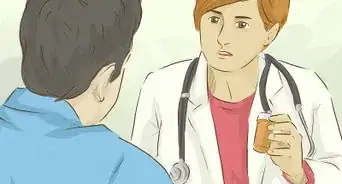















































Medical Disclaimer
The content of this article is not intended to be a substitute for professional medical advice, examination, diagnosis, or treatment. You should always contact your doctor or other qualified healthcare professional before starting, changing, or stopping any kind of health treatment.
Read More...